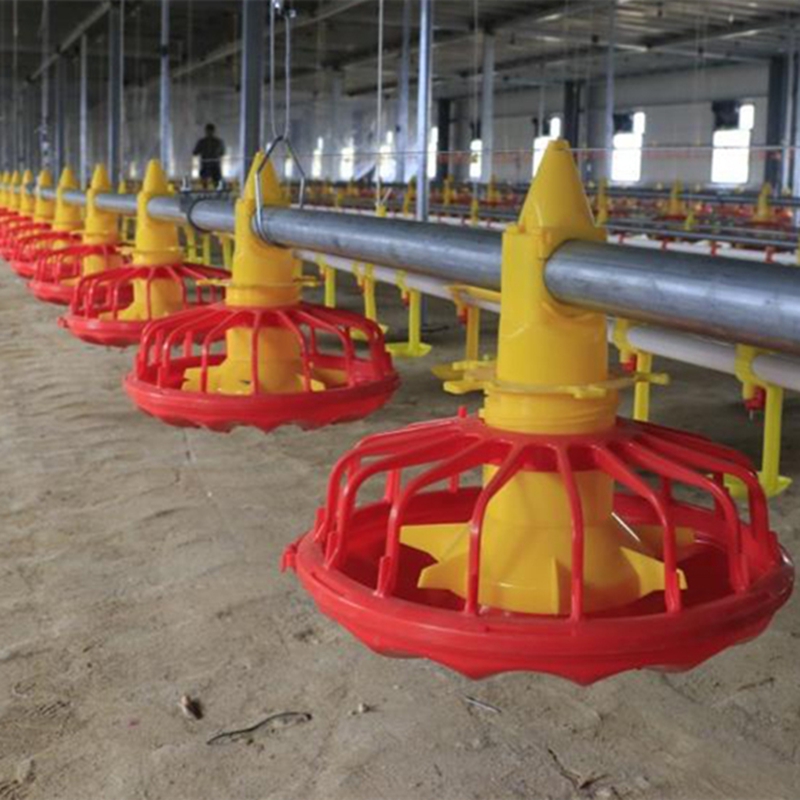feed mixer
ធ្នូ . 04, 2024 19:00 Back to list
feed mixer
Understanding Feed Mixers An Essential Tool for Livestock Nutrition
In the world of animal husbandry, ensuring that livestock receive a balanced and nutritious diet is paramount for optimal growth and productivity. Feed mixers play a critical role in this process, allowing farmers and feed manufacturers to create custom feed formulations that meet the specific dietary requirements of different species and production stages. This article delves into the importance of feed mixers, their types, and the benefits they bring to the livestock industry.
What is a Feed Mixer?
A feed mixer is a machine designed to blend various feed ingredients into a homogeneous mixture. This machine operates by combining different components—including grains, protein sources, vitamins, and minerals—into a consistent final product. The accuracy and efficiency of a feed mixer directly influence the nutritional quality of the feed, impacting the health and performance of the animals that consume it.
Types of Feed Mixers
Feed mixers come in various configurations, each suited for different scales of operation and types of feed formulation. The most common types include
1. Horizontal Feed Mixers These mixers feature a horizontal chamber where ingredients are blended using augers or paddles. They are known for their efficient mixing capabilities and are ideal for larger farms.
2. Vertical Feed Mixers Vertical mixers operate using a vertical auger to mix feed ingredients. They typically require less space and are suitable for smaller operations. These mixers often produce a more homogeneous mixture due to their design.
3. Rotary Feed Mixers Utilizing a rotary drum, these mixers provide a gentle yet effective mixing action. They are often used for blending delicate ingredients without damaging them.
feed mixer

4. Batch Mixers vs. Continuous Mixers Batch mixers prepare a specific quantity of feed at one time, while continuous mixers are designed for ongoing operations, constantly adding and mixing ingredients for a steady output.
Benefits of Using Feed Mixers
1. Improved Nutritional Consistency One of the primary advantages of using a feed mixer is the ability to create a uniform feed product. This consistency helps to ensure that all animals receive the same balanced diet, leading to improved health and performance.
2. Custom Formulations Feed mixers enable farmers to tailor feed rations based on the specific needs of their livestock. For example, young animals require different nutritional profiles compared to adults, and mixers can help adjust the ratios accordingly.
3. Cost Efficiency By allowing for bulk purchases of raw ingredients and minimizing waste, feed mixers can significantly reduce feed costs. Farmers can blend their own feeds rather than relying on pre-mixed options, resulting in savings.
4. Enhanced Feed Quality Proper mixing can improve the availability of nutrients, ensuring that livestock can absorb their feed more effectively. This can lead to better feed conversion ratios, where animals gain more weight per unit of feed consumed.
5. Time Savings Automated feed mixers can significantly cut down the time required for feed preparation. This efficiency allows farmers to focus on other critical tasks in their operations.
Conclusion
Feed mixers are invaluable tools in modern livestock management, offering numerous benefits that contribute to the health and productivity of animals. By providing consistency in feed formulation, allowing for customized diets, and improving overall feed quality, these machines play a crucial role in sustainable livestock production. As the demand for high-quality animal products continues to rise, the importance of feed mixers will only grow, making them an essential investment for any serious livestock producer. Investing in a good feed mixer not only enhances the nutritional status of livestock but also promotes a more efficient and economically viable farm operation.
-
High Performance Exhaust Fan – Efficient Ventilation Solutions for Home
NewsJun.10,2025
-
High-Quality Gestation Pen for Sows Durable Mobile Pig Pen & Simple Pig Pen Solutions
NewsJun.10,2025
-
High Quality Rabbit Cage Double Tier Designs & Welded Wire Mesh Supplier
NewsJun.10,2025
-
Floating Fish Feed Machine - High Efficiency Floating Fish Feed Extruder for Small Scale Production
NewsJun.10,2025
-
Premium Poultry Housing Solutions Mobile & Commercial Free Range Options
NewsJun.10,2025
-
Industrial FRP Fans Corrosion-Resistant Blades & Centrifugal Systems
NewsJun.09,2025






